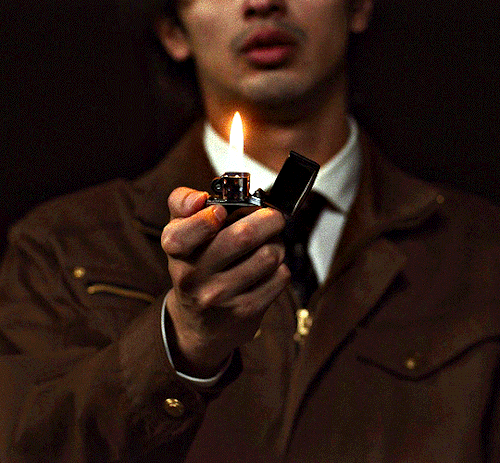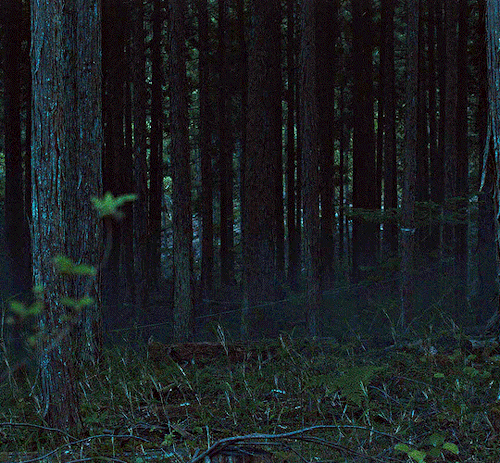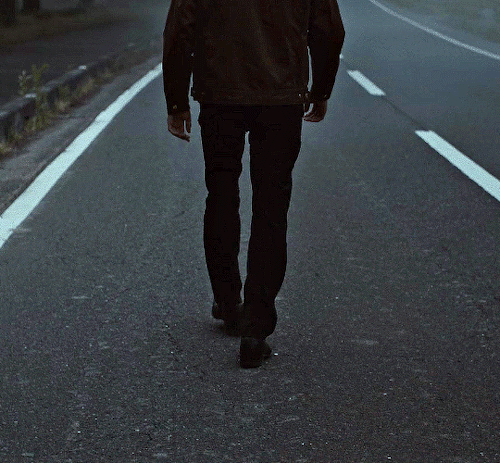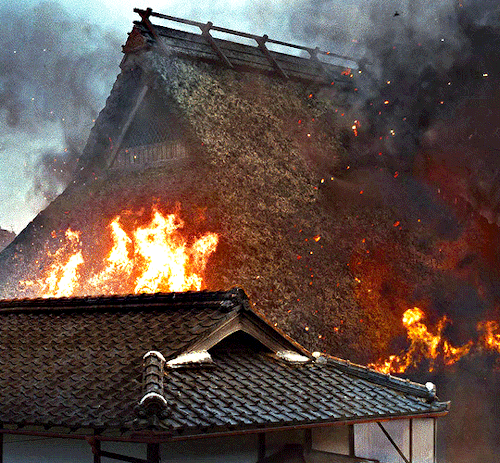Robert Mapplethorpe Embrace 1982

Robert Mapplethorpe Embrace 1982
More Posts from Sayaosi and Others
Poor Wöller, no one ever tells him what's going on lol













The village needs sacrifices. That's how it's survived. ヴィレッジ VILLAGE (2023), writ. & dir. by Michihito Fujii






Frasier (1993-2004) / Hannibal (2013-2015)
tw: brief mentions of miscarriage and suicide attempt
the dichotomy of the level of stakes in each episode of Downton Abbey will always be funny to me. Some episodes are like
“Thomas is on the brink of being fired for being gay”
“it’s the actual World War I”
“Sybil could very well die in childbirth”
“Bates has been arrested for a murder he didn’t commit”
“one of the staff caused a MISCARRIAGE of someone from Upstairs”
“Thomas has been found half dead in a self-inflicted bloody bathtub”
And then other episodes are like
“Will Carson let the staff go to the town fair”
“who will win the flower competition”
“The cooks dropped the chicken on the floor”
“Sybil is wearing pants”
“Branson is still fraternizing with the Downstairs”






House of Hummingbird 벌새 (2018)
I just watched Paprika (2006). The storyline was interesting, and I loved the animation. However, the fatphobia throughout the film was disappointing to see, especially coming from Chiba during that elevator dream scene.
Watched/read
Feminine and feminist cinema.
House of Hummingbird: the main character, Eunhee, was in eighth grade in 1994, which is to say she – and Kim Bo-ra, the director – are nearly exactly my age. It’s a sensitive, Proustian evocation of a ‘90s South Korean female adolescence, parts of which I relate to (those pagers!), parts of which I knew nothing about (one date chyron I won’t spoiler, that drew gasps from the audience), and parts of which are evergreen (dysfunctional Asian families where the only love languages are verbal abuse and food, and emotional support is non-existent even for favoured first sons). The sporadic outbursts of domestic violence, in particular, are so true to life as to be triggering; it made me think of people IRL to whom I’d only recommend the film with a warning. The actors are all very good but the one I’ll think back to is Kim Sae-byuk, who plays Eunhee’s mysterious yet relatable Chinese tutor and imbues the supporting character with a vast sense of inner life. The camera watches her face and you feel what she’s feeling for this girl, from the other side of the unidirectional gulf that is the Tired Adult™ looking upon an eighth grader much like she once was.
21st Century Girl: a thematic omnibus of short films commissioned from emerging female Japanese filmmakers, each of which has to be about love, gender, or sexuality in some way. One does what one can with the running time: some oblique love stories, some LGBT themes, some in media res snippets of what might eventually end up as feature-lengths with a beginning and an end, lots and lots of photographic montage and manifestos in voiceover. I liked “Your Sheet,” a gender-fluid erotic story that was also the most successful bit of standalone short fiction, and the rom-com concept of “Sex-less Sex-friends.”
Dare to Stop Us: for once I would have liked a Q&A session with the director and writer, because I have questions. The film is a dramatization of the late ‘60s-early ‘70s imperial period of Wakamatsu Studios, the “pink film” (experimentally x-rated, but also raging leftist pink-o) outfit founded by Wakamatsu Koji, an enfant terrible of Japanese cinema who used to be yakuza and purportedly turned to film so he could kill off cops without getting arrested. The main character is Megumi, a hippie girl who joins the studio at the age of 21 and works her way up to first AD within the year, not least due to the other ADs quitting. Megumi comes off as a designated-naif entry-point POV, possibly – I thought – a composite of women who worked for Wakamatsu, and the arc of her story seemed to bend toward surviving (gender-neutral) workplace hazing and becoming a successful indie director in her own right, as Wakamatsu promises when he hires her. Spoilers: she is not a composite! She existed, and what happens to her is gut-wrenching! It’s a rug-pull, honestly, especially since the director Kazuya Shiraishi worked with Wakamatsu and the initial vibe is “feel-good biopic of characters and environment I have huge nostalgic affection for.” In retrospect, one has to conclude he was half making that movie, half interrogating how the guerrilla filmmaking milieu can chew up the people who love it most, and is particularly unforgiving to women even when their bosses and peers aren’t overtly sexist.
(I also have questions about the slickly urbane portrayal of Oshima Nagisa, sitting in a cafe with his sunglasses telling Wakamatsu not to push his pro-Palestinian documentary too hard because the film world is “run by Jews,” because hoo boy was that a Moment.)




THE STRONGEST HAVE THE GREATEST MANSPREADS
I chop you down, hack at you with scissors like I greet the most evil character in a story. What power could a cluster of dead cells possibly hold over me, I think. Until I look in the mirror and see a stranger staring back. You keep growing, month after month after month, relentlessly like you are obsessed with caressing my neck. Others envy the liking you have taken to my collarbone and praise the fast paced journey you take to get there every month. But I know. Oh I know how cunning you are. I know how you plan to coil around my neck like an alive rope choking me tighter and tighter with every passing day and with every growing inch. I chop at you and you keep growing back, till the nape of my neck itches till it bleeds. But it's the ghost of an itch, and I really can't place it. My mom taught me to make beautiful braids out of the same rope that clutched my windpipe preventing me from breathing. I thank you mother, to have taught me to create something so beautiful out of something so horrible. But no mom, it doesn't help and it isn't me who you see in those pretty braids. No mom, you have ceased to know me from the moment you molded me out of your expectations and immaturity. No mom, I'm not going to hell for choosing to do what makes me happy. I choose to exist as I am, as I have been, and as I will be. I choose to breathe free. And I will not let anyone choke me dead for that matter.
no line in cinema has understood me in the way that “I love you too. but I shouldn’t have married you” from Fantastic Mr Fox has understood me. The idea that she wanted a family and a good, safe life, and she wanted him too. But no matter how hard she loves him, he can’t change. She’s never ever going to be able to get exactly what she wants and her child will always have a complicated relationship with his father and there will be this quiet realisation they have to live with. I love you so much, but this was our mistake. and now we’ve made it theirs too.
-
 midnightcowb0ys liked this · 3 weeks ago
midnightcowb0ys liked this · 3 weeks ago -
 s7cret-overdose liked this · 4 weeks ago
s7cret-overdose liked this · 4 weeks ago -
 cancopaike liked this · 1 month ago
cancopaike liked this · 1 month ago -
 carlos-tk reblogged this · 1 month ago
carlos-tk reblogged this · 1 month ago -
 souvlakicokaine liked this · 1 month ago
souvlakicokaine liked this · 1 month ago -
 katebusg reblogged this · 1 month ago
katebusg reblogged this · 1 month ago -
 fanfiction-thesis liked this · 1 month ago
fanfiction-thesis liked this · 1 month ago -
 orpheusdecapitated reblogged this · 2 months ago
orpheusdecapitated reblogged this · 2 months ago -
 antirelation reblogged this · 2 months ago
antirelation reblogged this · 2 months ago -
 reddeststring reblogged this · 2 months ago
reddeststring reblogged this · 2 months ago -
 missbeckywrites liked this · 2 months ago
missbeckywrites liked this · 2 months ago -
 inkblackfingers reblogged this · 2 months ago
inkblackfingers reblogged this · 2 months ago -
 neznoodles reblogged this · 2 months ago
neznoodles reblogged this · 2 months ago -
 bromocresol0green liked this · 2 months ago
bromocresol0green liked this · 2 months ago -
 cara-oswald liked this · 2 months ago
cara-oswald liked this · 2 months ago -
 bummerdawn98 liked this · 2 months ago
bummerdawn98 liked this · 2 months ago -
 lost-halo-rights reblogged this · 2 months ago
lost-halo-rights reblogged this · 2 months ago -
 xonference reblogged this · 2 months ago
xonference reblogged this · 2 months ago -
 goingsparebutwithprecision liked this · 2 months ago
goingsparebutwithprecision liked this · 2 months ago -
 theapplepielifestyle reblogged this · 2 months ago
theapplepielifestyle reblogged this · 2 months ago -
 smallestchurch liked this · 2 months ago
smallestchurch liked this · 2 months ago -
 narke reblogged this · 2 months ago
narke reblogged this · 2 months ago -
 sville1642 liked this · 2 months ago
sville1642 liked this · 2 months ago -
 craigthetourguide liked this · 2 months ago
craigthetourguide liked this · 2 months ago -
 f2tal reblogged this · 2 months ago
f2tal reblogged this · 2 months ago -
 girlinhisroom reblogged this · 2 months ago
girlinhisroom reblogged this · 2 months ago -
 girlinhisroom liked this · 2 months ago
girlinhisroom liked this · 2 months ago -
 butchdiaries reblogged this · 2 months ago
butchdiaries reblogged this · 2 months ago -
 dreamyholmes reblogged this · 2 months ago
dreamyholmes reblogged this · 2 months ago -
 leatherbutch reblogged this · 2 months ago
leatherbutch reblogged this · 2 months ago -
 rouge-diablo666 reblogged this · 2 months ago
rouge-diablo666 reblogged this · 2 months ago -
 themisconceptions reblogged this · 2 months ago
themisconceptions reblogged this · 2 months ago -
 cruisinsontag reblogged this · 2 months ago
cruisinsontag reblogged this · 2 months ago -
 killrwolves reblogged this · 2 months ago
killrwolves reblogged this · 2 months ago -
 nicolettosworld liked this · 2 months ago
nicolettosworld liked this · 2 months ago -
 as-my-master-commands reblogged this · 2 months ago
as-my-master-commands reblogged this · 2 months ago -
 boymaguire reblogged this · 2 months ago
boymaguire reblogged this · 2 months ago -
 sticksandguns reblogged this · 2 months ago
sticksandguns reblogged this · 2 months ago -
 solorettayoung liked this · 2 months ago
solorettayoung liked this · 2 months ago -
 strong-visuals liked this · 3 months ago
strong-visuals liked this · 3 months ago -
 userpeggycarter reblogged this · 3 months ago
userpeggycarter reblogged this · 3 months ago -
 blackandwhitefreeart liked this · 3 months ago
blackandwhitefreeart liked this · 3 months ago -
 kennicky reblogged this · 3 months ago
kennicky reblogged this · 3 months ago -
 kennicky liked this · 3 months ago
kennicky liked this · 3 months ago -
 commiecricket liked this · 3 months ago
commiecricket liked this · 3 months ago -
 throateeth reblogged this · 3 months ago
throateeth reblogged this · 3 months ago -
 nmorown liked this · 3 months ago
nmorown liked this · 3 months ago -
 nmorown reblogged this · 3 months ago
nmorown reblogged this · 3 months ago -
 asphalthalo reblogged this · 3 months ago
asphalthalo reblogged this · 3 months ago -
 patientsaint liked this · 3 months ago
patientsaint liked this · 3 months ago

She/her | 22 | 🩷💛🩵-💚🩶🤍🩶💚Blogging about my various interests including TV shows, film, books, video games, current events, and the occasional meme. My letterboxed: https://boxd.it/civFT
123 posts